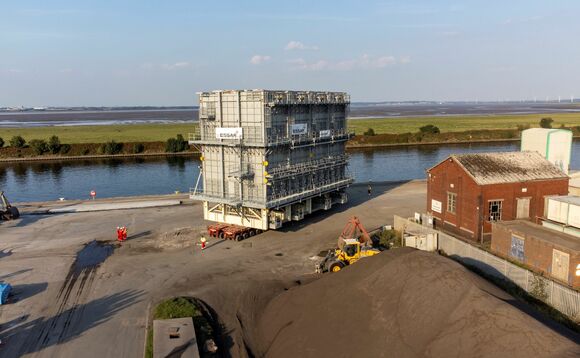
Indian industrial conglomerate Essar Group has today become the latest carbon intensive firm to ramp up its clean tech investment plans, announcing the formation of a dedicated unit to deliver new hydrogen, ammonia, and biofuel projects.
The company, which holds major interests in the oil, metals, and mining industries, said its new Essar Energy Transitions (EET) division would reposition the business for "growth and resurgence", while leading efforts to establish a world-leading energy transition hub in north east England.
The new venture is to be backed by a multi-billion dollar investment programme over the next five years, primarily focused on sites in the UK and India. Around $3.6bn has been earmarked for a range of low carbon energy transition projects, including $2.4bn at its site at Stanlow, between Liverpool and Manchester, and a further $1.2bn in India.
The company said EET will bring together a number of existing Essar ventures, including Essar Oil UK, the company's refining and marketing business in North West England; Vertex Hydrogen, which plans to develop 1GW of blue hydrogen capacity for the UK market; EET Future Energy, which is developing 1GW of green ammonia capacity in India; Stanlow Terminals Ltd; and EET Biofuels.
"EET's strategy is founded on the fact that hydrogen and biofuels are fast becoming globally significant fuels of the future and that the UK is positioned strongly to spearhead the rapid growth of the European low carbon fuels market," the company said. "The UK already benefits from an advanced regulatory and policy framework to support low carbon energy production, including the UK government's target of achieving 10GW of hydrogen production by 2030, alongside developing low carbon hydrogen infrastructure, expertise and significant customer demand.
"Such is the scale of the market growth opportunity that EET estimates approximately two-thirds of its aggregate cash flows could come from diversified low carbon sources before the end of the decade."
The company said its Stanlow refinery would also achieve a 75 per cent reduction in carbon emissions before the end of this decade as part of EET's decarbonisation plans, making it "of the most sustainable refineries in Europe".
"The launch of EET is a major milestone in Essar's long-standing commitment to put the UK at the forefront of low carbon energy," said Prashant Ruia, director at Essar Capital. "We are excited about the opportunity to drive the UK's energy transition by producing low carbon future fuels which will help eliminate around 20 per cent of the industrial carbon dioxide in Northwest England. In doing so, it will provide a blueprint for how traditional industries globally can be successfully transformed into hubs for the production of future energies."
The commitment is likely to be welcomed by the UK and Indian governments, both of which have pledged to boost investment in low carbon infrastructure in pursuit of their net zero emissions goals.
However, the promise of new investment will also further ratchet up pressure on the UK government to finalise long-awaited policies designed to enable the development of a new pipeline of carbon capture and hydrogen projects which are regarded as critical to plans to establish two zero carbon industrial hubs in England's north west and north east.